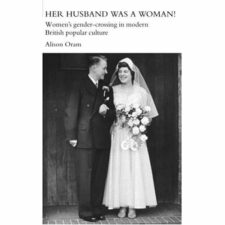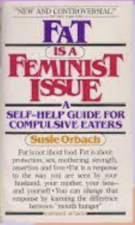Before the Married Women’s Property Acts of the nineteenth century, the marriage law in England, Wales and Ireland removed a wife’s right to her own property, putting it under the control of her husband. Yet, the other side of this law was that husbands had to provide for their wives as long as they lived together, and that wives could use their husband’s credit, with permission, to buy goods for the household. Until the later-nineteenth century, most purchasing of household goods was on credit with bills being paid quarterly, bi-annually, or annually. To ensure the smooth running of the households, it was customary for most wives to be able to use their husbands’ credit without directly asking consent, and generally if the purchases were reasonable and in the ordinary course of running a household, the court would force husbands to pay these debts (if it came to court!). As a result, when couples split up, wives often continued to use their husbands’ credit, even where they had no legal right to do so. To stop them doing this, husbands took out notices in newspapers to warn shopkeepers not to credit their wives. The following examples come from the Belfast Newsletter:
Whereas Elizabeth Neill the supposed wife of William Fitzgerald had for some time past behaved herself in a loose and disorderly manner and is running up debt and threatens to do so of worse. Now to hinder her from so doing and going on in bad course of life, I do give this publick notice to all person not to trust her on my account, for I will not pay one farthing for what she shall contract from the date hereof. Given under my hand this 29th day of April 1757, William Fitzgerald.
Whereas Sarah Gray, otherwise Park, the wife of William Park, in the townland of Carnlay in the parish of Ballycashown in the country of Antrim, weaver, did elope from her said husband on Tuesday last the 14th instant, and continues to live separate from him, contrary to his inclinations and without any just ground of offence. This is therefore to give notice that no person or person may credit the said Sarah for any sum of money on account of me the said William Park, for I will not pay any debt she shall contract after the date hereof. Witness my hand Jun 15 1757, William Park
The wording of newspaper notices, however, was not straightforward. Husbands could not leave their wives without support; it was only if the wife transgressed that the husband was not liable for her support. This led to situations like this which was in the Belfast Newsletter of the 23rd May 1770:
Ballylesson, May the 23d 1770, Whereas my wife Sarah Cowden, otherwise Sarah Mamor[?] and I are parted by consent; This is to caution the publick not to credit or trust said Sarah Cowden any thing in my name as I am determined not to pay any debts by her contracted from the above date. As witness my hand John Cowden, junr
And followed by this on the 29th May 1770:
Whereas my wife Sarah Cowden, otherwise Sarah H[?] hath eloped and after repeated entreaties to return, she absolutely refuses to do so. And whereas by her behaviour since her elopement both by word and actions, indiscreetly and immodestly, I do hereby caution the publick not to give her any credit on my account as I am determined not to pay any debts by her contract. As also any person whatsoever are hereby required not to harbour or entertain her in any shape whatever as I am determined to put the law in force to its severity against all such offenders. Given under my hand at Ballylesson, this 23d May 1770. John Cowden, junr.
Realising that parting by consent left John legally liable for his wife’s debt, he quickly changed his story! Similarly, wives often contested their portrayal in these advertisements. This advert appeared in the Belfast Newsletter on the 21st October 1755:
Jane Kirk, otherwise Cuddy, wife of David Cuddy, of D[?] in the parish of Ballylinny in the county of Antrim, farmer, did of the night between the 20th and 21st days of October inst, elope from her said husband after having his house and taken away four cows & heffers and [?] This is therefore to caution all persons from givin her any credit, for I will pay no debt she shall contract. Dated 25th of Oct 1755, David Cuddy.
And was quickly followed on the 24th October 1755 with his wife’s response:
Whereas David Cuddy hath advertised Jane Kirk, otherwise Cuddy, his wife, she having eloped from him and taken away sundry of his goods and Jane in her vindication thinks proper to give [?] That it was by her industry that the said David Cuddy had any thing to take. That the said David Cuddy used her on all occasions in a cruel unbecoming manner, often threatening to kill her and putting her to such fear that she durst not sleep to the house with him; without having some of the neighbours to [ill] the same house; And his having resolved to sell off all he had, and then turn his said wife out of doors; for these reasons she was advised to secure part of those things [ill] which were of her own producing; and hopes therefore she will stand exonerated by every reasonable person and particularly those of her and her said husband’s acquaintances who knew part of the ill-treatment she hath not [ill] and to whom she appeal for the truth of what is [ill] let forth. Date Oct 14 1755, Jane Cuddy.
A woman’s reputation could be ruined by such an advert and many were willing to contest their husband’s representation of their marriage. Similarly, an irate husband may change his mind on reflection! The following appeared on the 17th Jun 1757:
Whereas Mary Donnell, otherwise Read, the wife of John Read, of Donnaghadee, in the county of Down, mariner, did elope from her said husband on the 28th day of May last, carrying away all the good in the house and continues to live separate from him, contrary to his inclination and without any provocation; Now this is to give notice that no person or person do give the said Mary credit for any form of money or goods on account of me the said John Read for I will not pay any debt she shall contract after the date hereof. Given under my hand this 17th day of June 1757 James Read.
And was followed on the 1st July 1757 with the following:
Whereas John Read of Donnaghadee, mariner did advertise in this paper of last Friday his wife Mary Read having eloped form him and carried off his household goods, Now I the said John Read do acknowledge that the assertion of said Mary carrying away said good was false and that I was instigated to publish said advertisement by evil advice and from groundless and unjust suspicion of which I am now thoroughly convinced and heartily sorry and ashamed Witness my hand July 4th 1757, John Read.
Whether the advert was written by an angry husband or an irritated wife, such advertisements provide the historian with a fascinating insight into married life in the past.
Katie Barclay is a historian of marriage at the University of Warwick. For those of you keeping up with her gardening exploits, you’ll be happy to know that she finally got the last of her vegetables planted today!

